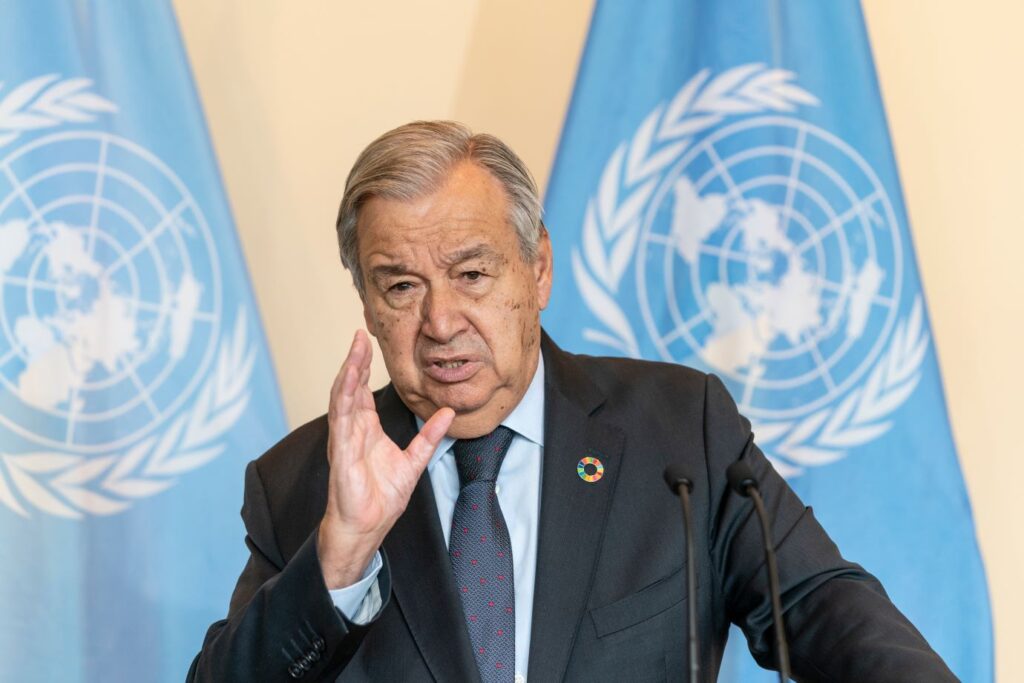Less than 10 per cent of speakers at this week’s General Debate at the United Nations General Assembly are women.
The General Debate at the UN General Assembly is one of the most significant global platforms for heads of state and government leaders to discuss the most pressing issues facing the globe.
At a time of heightened conflict and war, poverty, climate change, rapidly advancing artificial intelligence and economic instability and inequality, the discussions that take place at the UN General Assembly are critical.
Women’s voices need to be at the table but year after year, women remain underrepresented as speakers.
The stark gender imbalance of speakers at the global event was noted on social media by António Guterres, the Secretary-General of the United Nations.
“I am sorry to see that despite years of talk, gender inequality is on full display in the United Nations General Assembly Hall during #UNGA,” Guterres wrote.
“Less than 10% of speakers during this week’s General Debate are women.
“This is unacceptable – especially when we know gender equality delivers for peace, sustainable development, climate action and much more.
“That is precisely why we took targeted measures to achieve gender parity among United Nations senior leadership.
Guterres also went on to call on male-dominated political and economic establishments around the world to do the same.
While it’s good to see Guterres acknowledging the problem, nothing seems to have shifted in recent years on women’s representation at the UN General Assembly.
Last year, we noted on Women’s Agenda that just 24 per cent of Permanent Representatives at the General Assembly are women, according to the Inter-Parliamentary Union (IPU).
It was left to South African President Cyril Ramaphosa to ask: “Where are the women of the world?” at the event in 2023.
“It should be a matter of concern to us all that the majority of people who are sitting in this assembly are men,” he said at the time. Twelve months on, the optics are the same.
Currently, just 18 countries have a woman as Head of State, and 15 have a woman as Head of Government, according to UN Women. There are only 15 countries in which women hold 50 per cent or more of the positions of Cabinet Ministers leading policy areas.
Meanwhile, calls have been growing for the end of “the male monopoly of the UN’s highest office” and for a woman to be appointed as the next Secretary-General of the UN.
Feature Image: António Guterres, the Secretary-General of the United Nations.


